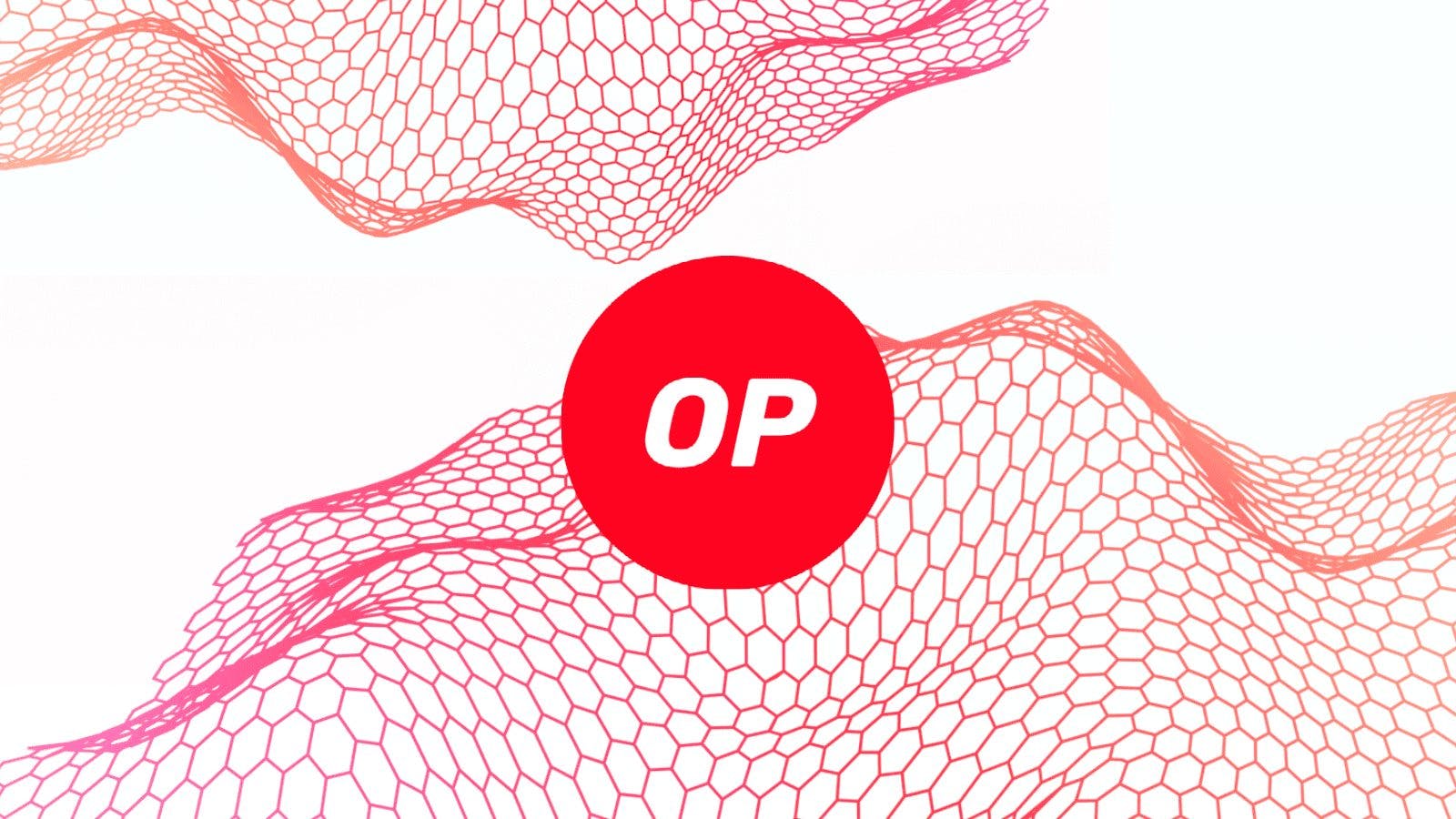Blazing an Optimistic Trail on Ethereum
Optimism, an Ethereum layer-2 network based on optimistic rollup technology, has a new spin on airdrops, governance and incentive alignment

Source: Optimism
key takeaways
- Governance will eventually be split between two co-equal branches, according to a constitution
- An initial retroactive airdrop will be the first of many seeking to coordinate network participants
Optimism — an Ethereum layer-2 solution featuring optimistic rollups — is planning to decentralize its governance through the release of a token.
The network detailed the token launch, OP, in a blog post this week. While not the first layer-2 to launch a token, the mechanism of distributing it and the overall governance structure is novel in that it envisions a bicameral system of co-equal “houses”: a “Citizens’ House” and a “Token House.”
“If we just had tokens, then governance rights would be buyable on the open market,” Karl Floersch, chief technology officer, said on the Bankless podcast.
The plan calls for an “Optimism Collective,” which explicitly aims to prevent the centralization of governance power in the hands of moneyed interests. “It’s more equal,” Floersch said.
Rather than follow a one-token-one-vote structure, the system’s architects at Optimism PBC, a public-benefit corporation rebranded as OP Labs, sought to create a “balanced, decentralized, bottom-up governance system by the people for the people.”
Layer-2 implementations, built on top of Ethereum’s mainnet, inherit Ethereum’s security but allow transaction throughput to scale, while reducing gas fees — the cost of block space on the network. Optimism is currently the third largest layer-2 by total value locked, at $670 million, behind Arbitrum and dYdX, according to L2beat.
Tokens have typically been used to bootstrap liquidity on new protocols, but Optimism received an early boost by being the first layer-2 on which Uniswap announced it would deploy its leading dex protocol. Synthetix, another decentralized finance (DeFi) blue chip, embraced the network as its rollup solution of choice.
A new kind of airdrop
Jinglan Wang, Optimism’s co-founder and CEO, and Ben Jones, formerly the chief scientist, will move to a new Optimism Foundation, which will fund external teams to build out the OP ecosystem.
The OP token is not yet claimable, let alone tradeable on the secondary market, but the team sought to de-emphasize its role.
“The token is missing the point of this thing. This is about building a new system of governance and funding mechanisms for public goods,” Jones said.
The problem with Web2 is plutocracy, Wang said. The Optimism team are trying to avoid a “sneaky plutocracy,” enabling Optimism network participants to coordinate without falling prey to the “pressures of centralization.”
To do that, governance power will reside with “citizens” — holders of NFTs that will be distributed by projects built on Optimism. But unlike most NFTs (non-fungible tokens) today, these will be “soul bound,” that is, fixed to a specific address — a single person. They will not be able to be transferred or sold.
While the details remain scant, the team envision a grassroots network, seeding a “web of trust” on-chain that will grow over time. Independent projects will decide which of their community members will best represent their community’s interests in Optimism governance.
The idea has been received favorably among the broader Ethereum community, with co-founder Vitalik Buterin calling it “possibly the biggest attempt at non-token-holder-centric DAO governance so far.”
The initial airdrop was aimed to be “super fair,” with a wide distribution and built-in Sybil-resistance, by rewarding a set of behaviors that would be difficult to game. But it will only be the first of a string of airdrops used to incentivize activity that helps Optimism, and Ethereum more broadly, grow, by distributing public goods funding to recipients from across Ethereum development.
The team see its governance experiment as a test bed for the future evolution of the entire internet.
“Right now we sit at an inflection point…this is a moment where the internet is most sorely in need of human representation, identity, and fixing these problems that we have,” Floersch said.
“Humanity is important, we need to capture and fight for our rights as people and individuals to make sure our networks reflect our values.”
Get the news in your inbox. Explore Blockworks newsletters:
- The Breakdown: Decoding crypto and the markets. Daily.
- Empire: Crypto news and analysis to start your day.
- Forward Guidance: The intersection of crypto, macro and policy.
- 0xResearch: Alpha directly in your inbox.
- Lightspeed: All things Solana.
- The Drop: Apps, games, memes and more.
- Supply Shock: Bitcoin, bitcoin, bitcoin.





